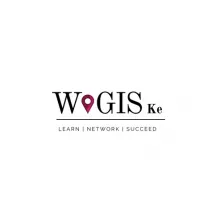WiGISKe (Women in GIS Kenya) is a consortium of tech enthusiasts from diverse backgrounds designed to advance the presence of women in GIS in Africa and drive data-driven policy changes around issues affecting women and girls. WiGISKe operates around 3 key activities namely:
- Community Learning
- Crowdsourcing Insights
- Research and Innovation
Community Learning -- Bi-monthly technical sessions (which we refer to as 'after-office hours') which are hands on spatial data analytics sessions that aim to upskill our community and bridge the gap between lecture hall notes and the corporate world. We aim to build a vibrant technical community that will create solutions for Africa's most pressing problems. Our technical sessions have been done in collaboration with Esri, Kenya's Red Cross, and Nairobi R. Pathways International.
Crowdsourcing Insights -- Quarterly curated data visualization challenges aimed at using data to create and vocalize gender-based stats around issues facing women and girls. So far we have ran 3 challenges around teenage pregnancies, gender-based violence, and cervical cancer awareness. These challenges are aimed to provide a data perspective of societal issues to create localized response mechanisms and create awareness.
Research and Innovation -- Our research and innovation is driven by the use of data for gender equity and social justice. These are collaborative/ joint research programs with government, private sector, and non-governmental organizations. This arm has grown to be very impactful with our latest engagement being part of the COVID-19 Presidential Advisory Team to address the country's severity index in collaboration with the Ministry of Health and Jomo Kenyatta University. We created data models to inform at risk and marginalized communities in need of stimulus packages as well as modeling the impact of government measures in curbing the infection rates.
Priorities as a partner of the Global Partnership for Sustainable Development Data
WiGISKe, in collaboration with the Global Partnership for Sustainable Development Data, Arizona State University, Center for Rights Education and Awareness (CREAW), Esri, Strathmore University, International Center for Research on Women (ICRW), UNFPA ,and Kenya's State Department of Gender created a Gender Situation Room.
The goal of the situation room was to create a full data picture to having a gendered response, recovery, and resilience. This is to provide granular, timely, comprehensive data to fully delineate the impacts of COVID-19 on women and girls across three dimensions: health (maternal services, FGM, GBV), economy (informal employment and unpaid care work), and social (teenage pregnancies).
